Our Library
Explore our publications, from research papers and series to educational materials, covering all aspects of conflict transformation and peace promotion.
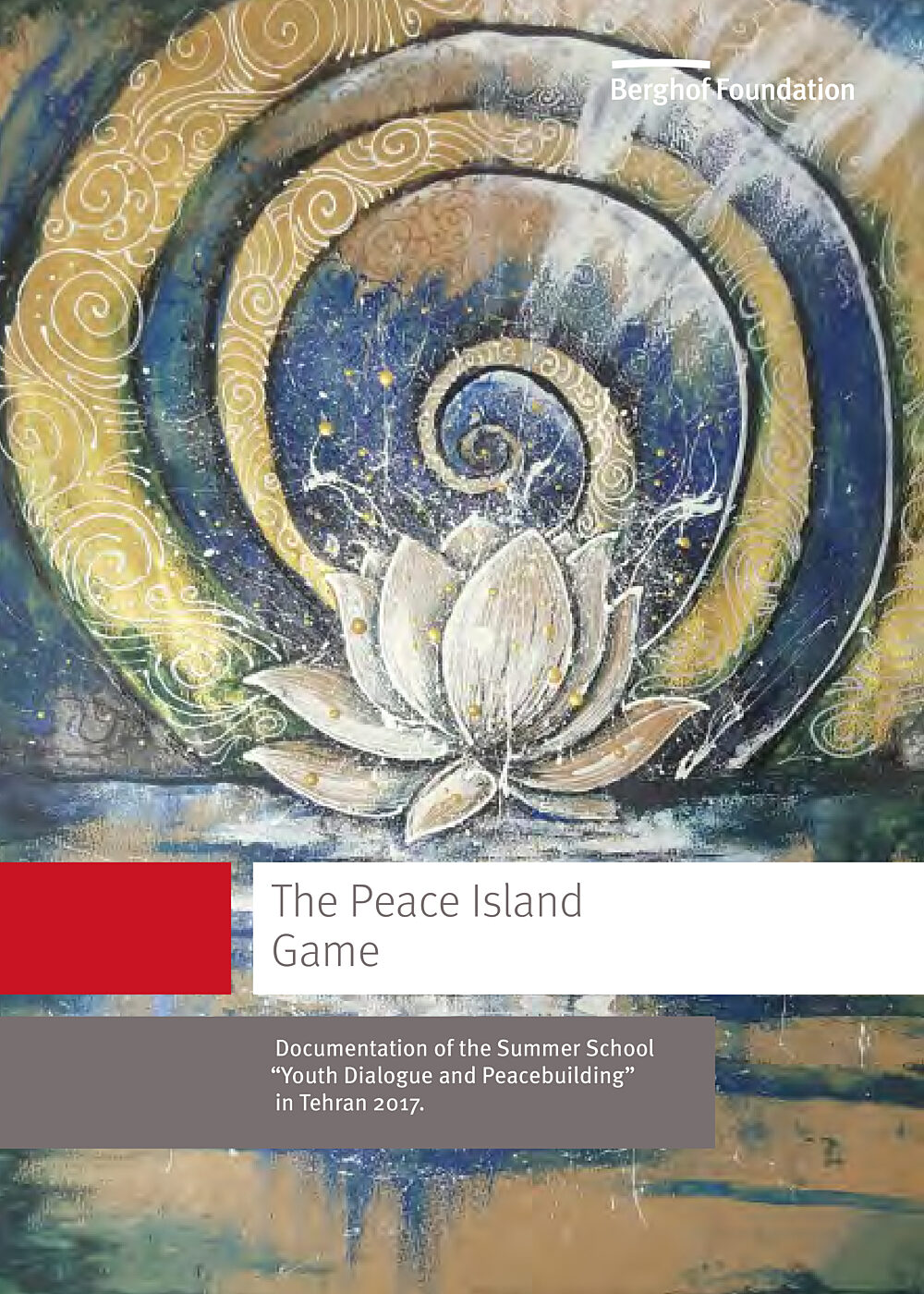
The Peace Island Game
This documentation is published as part of the project “Peace Education in Iran”. It gives an insight into the topics and participatory activities implemented in a Summer School on “Youth Dialogue and Peacebuilding” with participants from eight countries, prepared with and conducted at Tehran Peace Museum. Heart of the course was an interactive game called “Peace Island”. The publication contains advice for trainers and worksheets for further use.
- Year2017
- Author(s)Isabella M. Bauer, Anne Kruck

مدارس خالية من العنفيف األردن يف سبتمرب/أيلول 2017 املخيم الصيفي لوساطة األقران املنعقد
وساطة األقران هي املقاربة العامة لربنامج التعامل مع النزاعات دون استخدام العنف. يحتوي دليل املعلمني هذا والنظريات الرتبوية عىل مقدمة أساسية حول ّ »مدارس خالية من العنف!«، وهي تهدف إىل الحد من العنف يف املدارس وإىل تعزيز قدرات املعلمني والطلبة عىلمقاربة وساطة األقران وحول أساليب خاصة لعرضها عىل الطلبة ولتطبيقها يف املدارس. وهي ال تعترب برنامجا تدريبيا شامال للوسطاء األقران، ولكنها متنح بعض الوسائل املساعدة، مثل لعب األدوار والتامرين، التي تساعد عىل االستامع الفعال وعىل تغيري وجهة النظر وعىل التفكري النقدي، وهي جميعها قدرات بالغة األهمية بالنسبة للوسيط. ويتطلبّ ّ مكن من الحد من العنف بصفة دامئة وطويلةً ً ا وتحضري ً ا دقيقا. وللتالتطبيق، وخاصة تدريب الوسطاء األقران، وقتاألجل، ينبغي إرشاك املدرسة بأكملها يف عملية التطبيق، مبا يف ذلك قسم التسيري واإلدارة )انظر الفصل الخامس(.
- Year2017
- Author(s)Hazem Elgafari, Dagmar Nolden, Cassandra Schützko
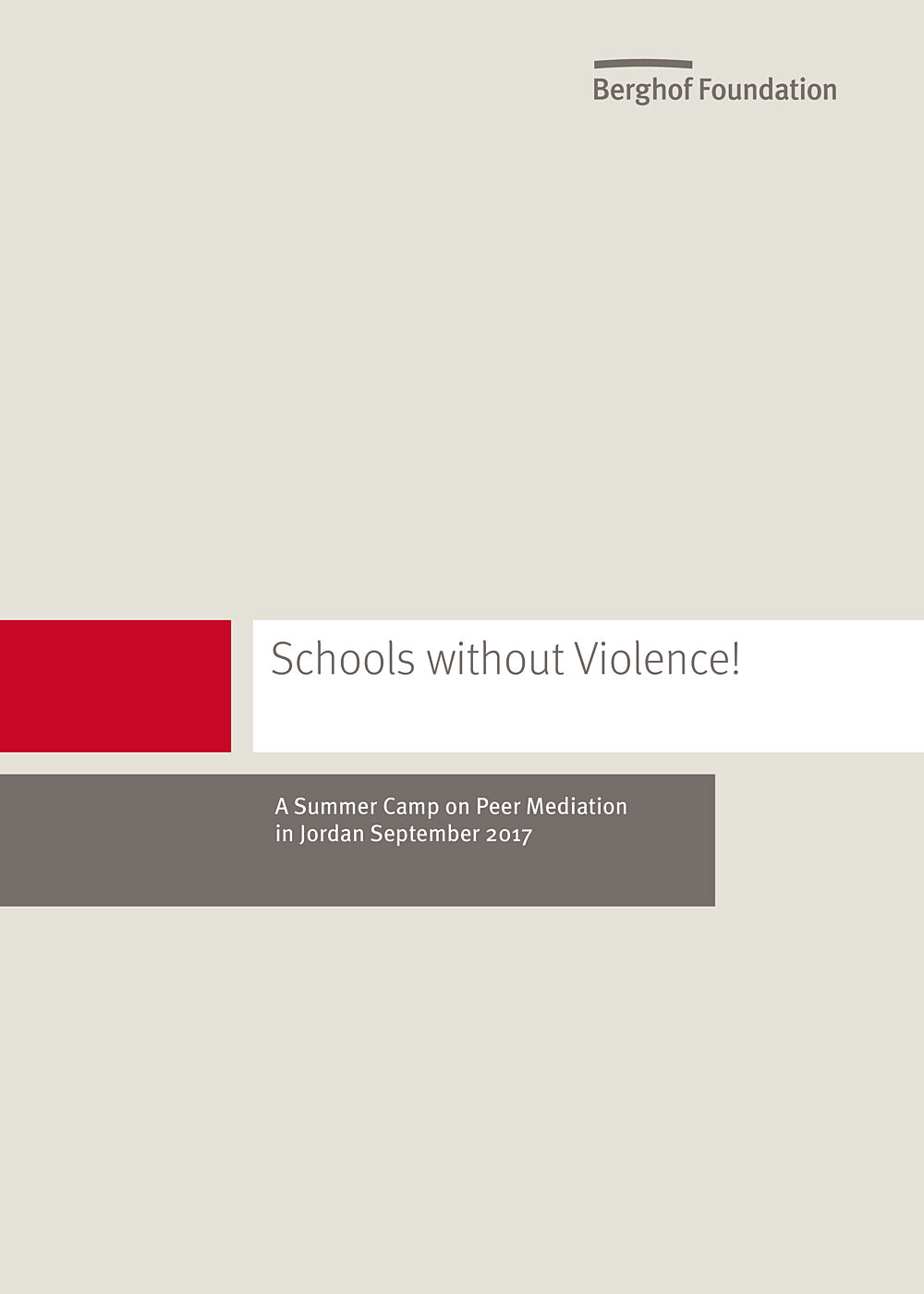
Schools without Violence!A Summer Camp on Peer Mediation in Jordan
This documentation is published as part of the project "Nonviolent Education in Jordan". It gives an insight into the topics and participatory activities of two summer camps with 8th grade students from Amman, with the main focus on “Peer Mediation in Schools”. The publication contains advice for facilitators and worksheets for further use.
- Year2017
- Author(s)Hazem Elgafari, Anne Kruck, Cassandra Schützko
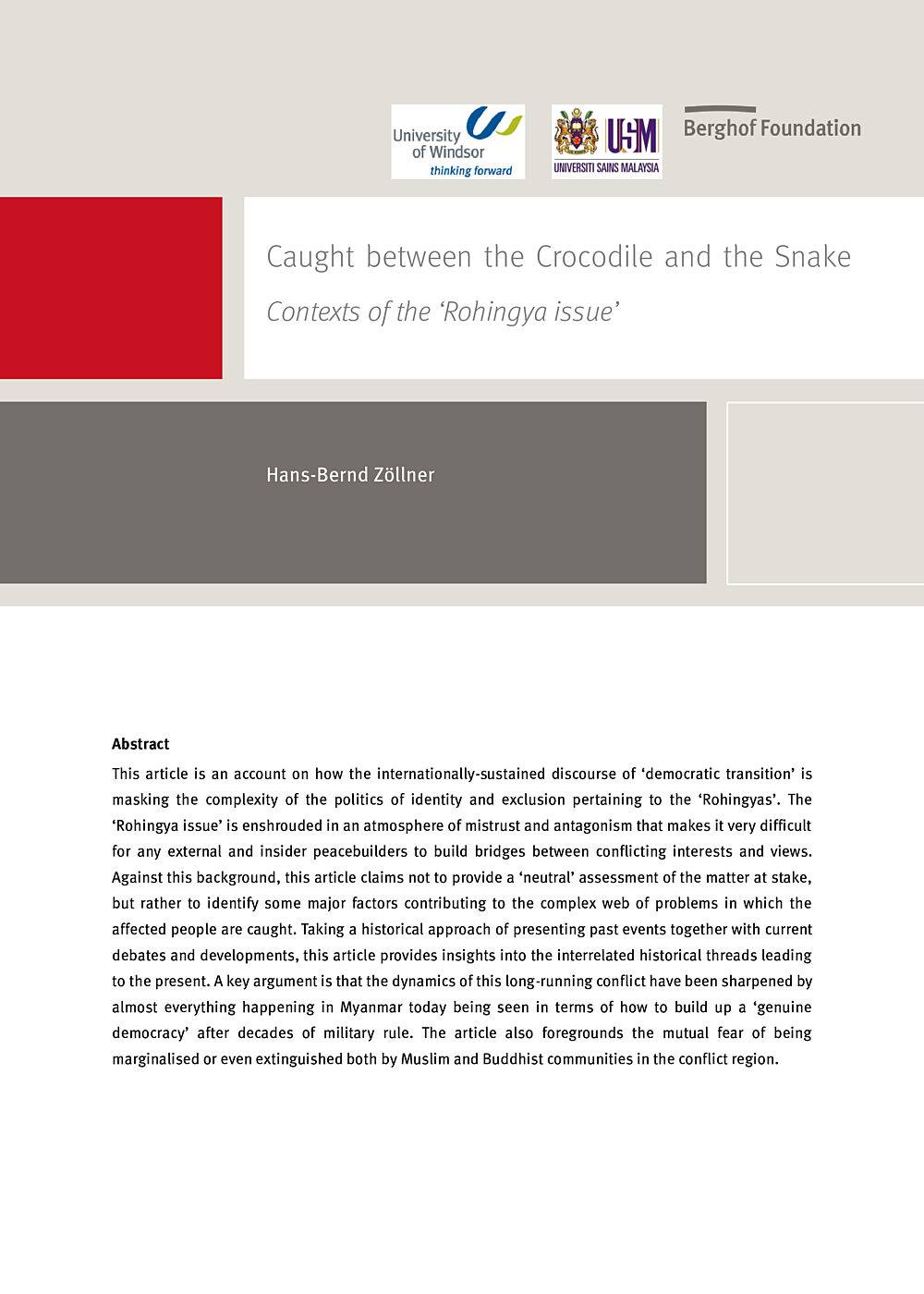
Caught between the Crocodile and the SnakeContexts of the ‘Rohingya issue’
This article is an account on how the internationally-sustained discourse of ‘democratic transition’ is masking the complexity of the politics of identity and exclusion pertaining to the ‘Rohingyas’. The ‘Rohingya issue’ is enshrouded in an atmosphere of mistrust and antagonism that makes it very difficult for any external and insider peacebuilders to build bridges between conflicting interests and views. Against this background, this article claims not to provide a ‘neutral’ assessment of the matter at stake, but rather to identify some major factors contributing to the complex web of problems in which the affected people are caught.
- Year2017
- Author(s)Hans-Bernd Zöllner
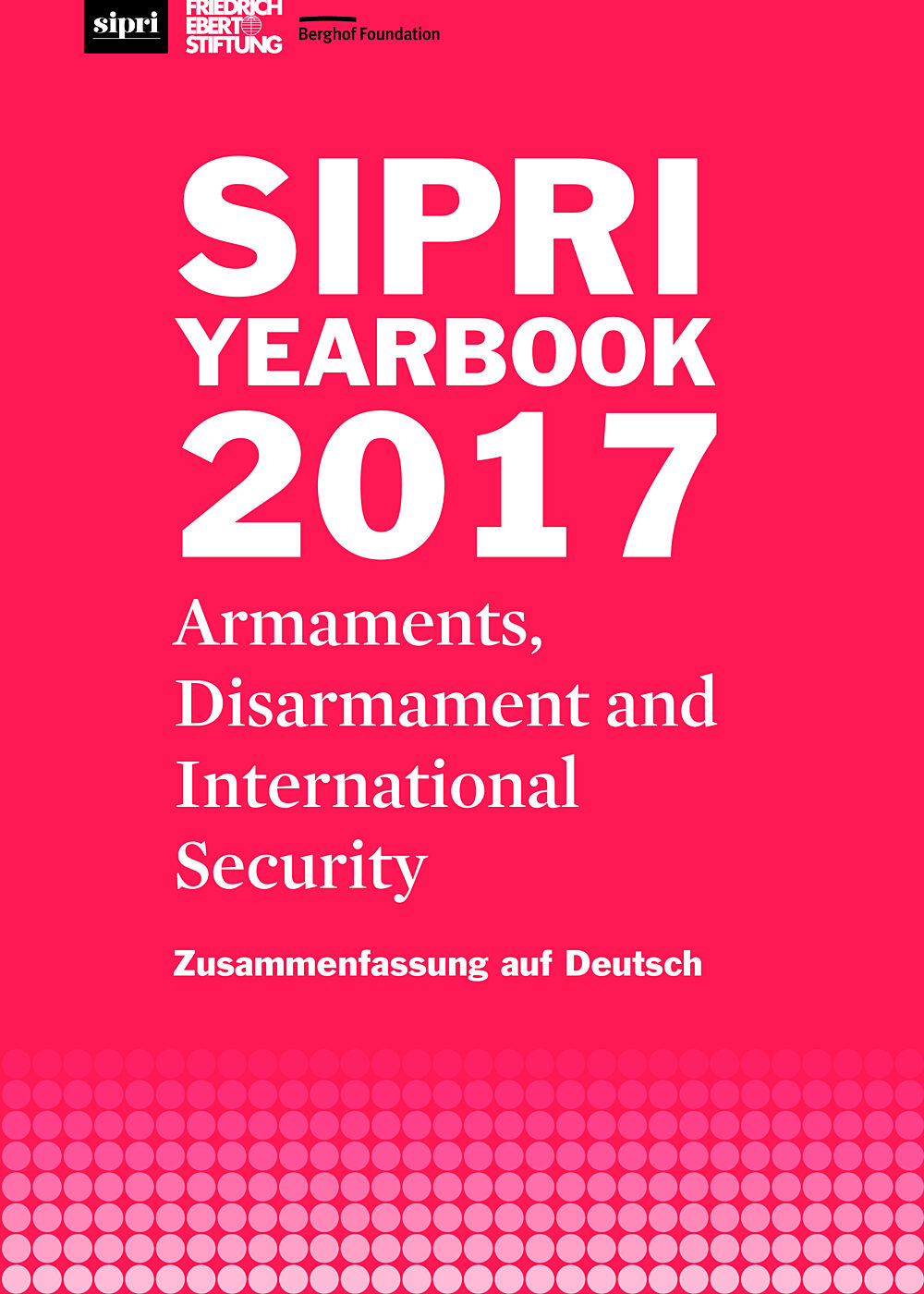
SIPRI Yearbook 2017Armaments, Disarmaments and Internatinal Security (Kurzfassung Deutsch)
Das SIPRI Yearbook wird weltweit von Politikern, Diplomaten, Journalisten, Wissenschaftlern, Studierenden und Bürgern geschätzt. Als zuverlässige und unabhängige Quelle liefert es Daten und Analysen zu den Themen Rüstung, Abrüstung und internationale Sicherheit und einen Überblick über Entwicklungen in den Bereichen internationale Sicherheit, Waffentechnologien, Militärausgaben, Rüstungshandel und -produktion sowie bewaffnete Konflikte. Auch Bestrebungen zur Kontrolle konventioneller, nuklearer, chemischer und biologischer Waffen werden hier thematisiert.
Diese Broschüre fasst die 48. Ausgabe des SIPRI Yearbook 2016 zusammen.
- Year2017
- Author(s)Stockholm International Peace Research Institute (SIPRI)
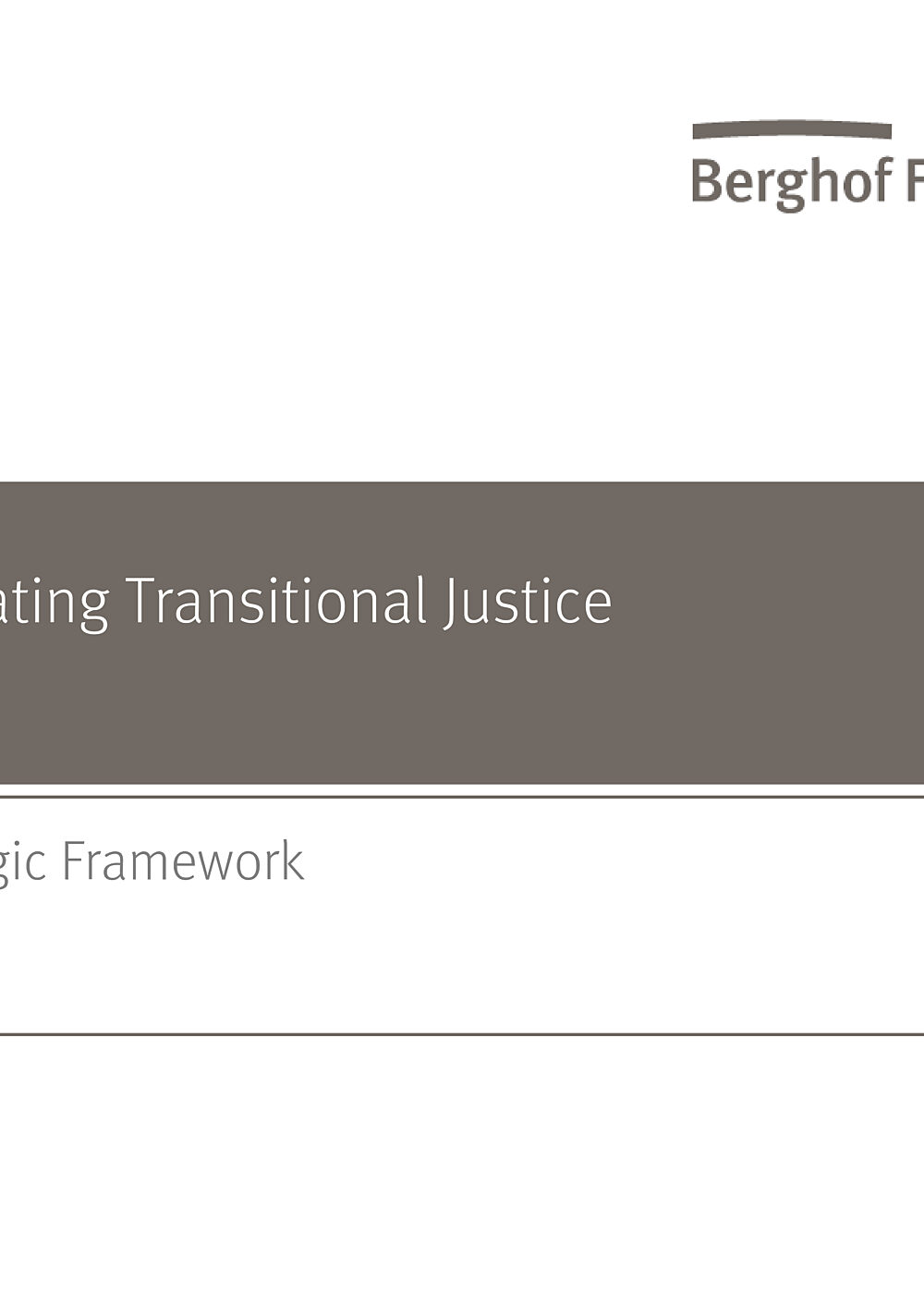
Negotiating Transitional JusticeA Strategic Framework
This Strategic Framework was developed during the 9th Meeting on Negotiations for Resistance and Liberation Movements (RLMs) in Transition entitled Transitional Justice and the Role of Victims in Peace Negotiations held in October 2017, in Berlin. It provides an overview of some of the most frequent challenges RLMs face when negotiating justice and dealing with questions of victim participation. At the same time, this overview intends to offer a strategic framework for readers to address these challenges in light of comparative best practices and lessons-learned in order to support an informed understanding and strategy making of conflict actors in negotiating transitional justice
- Year2017
- Author(s)Nico Schernbeck, Luxshi Vimalarajah

El diálogo en los núcleos veredalesCaja de herramientas metodológicas para facilitadores(as) de diálogo en el marco de los Programas de Desarrollo con Enfoque Territorial (pdet)
La Caja es un conjunto de herramientas que les permite a ustedes, como personas encargadas de organizar y facilitar los espacios de participación y diálogo en el marco de los desarrollos del pdet, dimensionar e implementar su tarea, tomando en cuenta una propuesta de ruta metodológica y sus principios orientadores.
- Year2017
- Author(s)Agencia de Renovación del Territorio
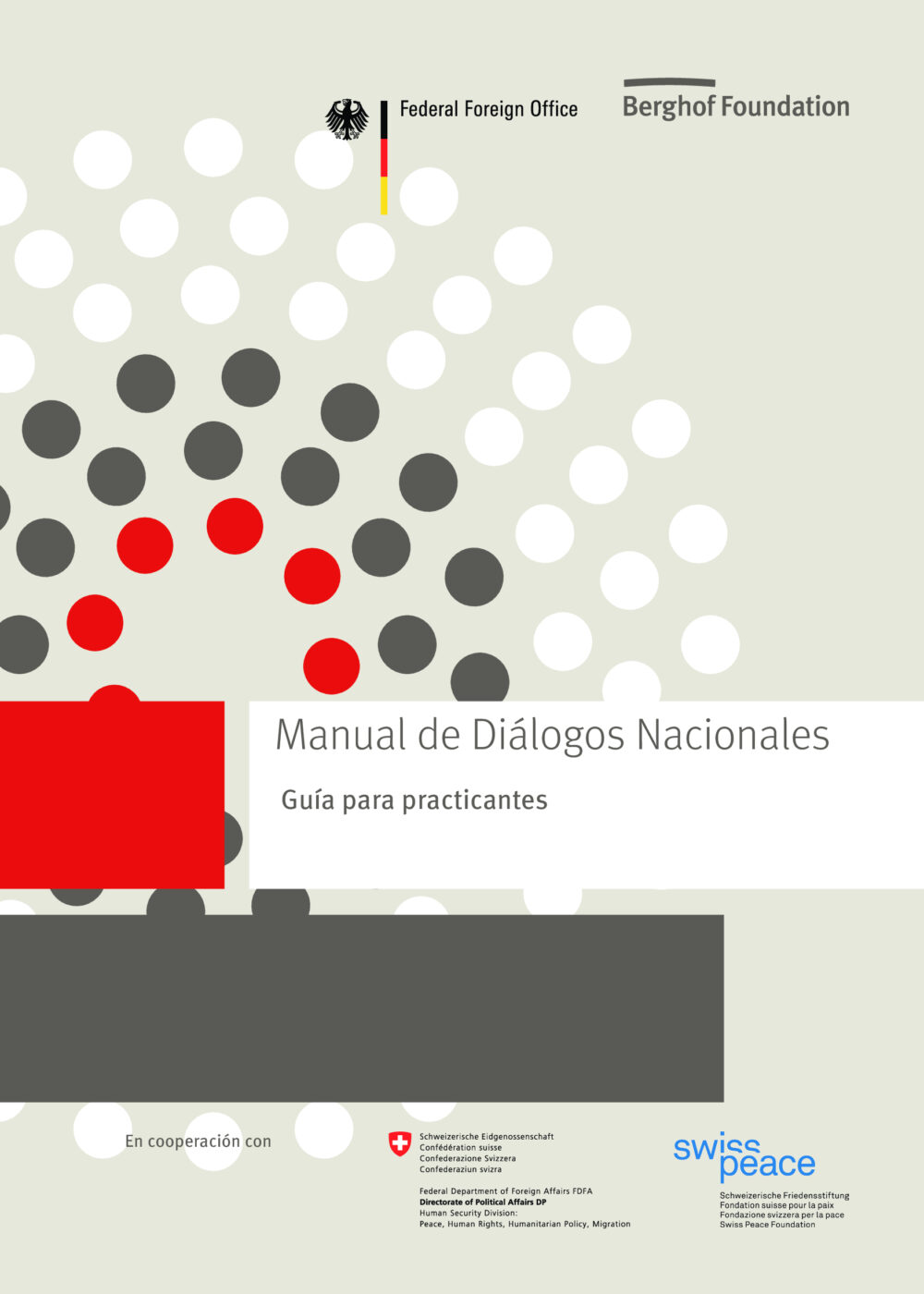
Manual de Diálogos NacionalesGuía para practicantes
La Fundación Berghof ha elaborado el presente Manual de Diálogos Nacionales en colaboración con la Fundación Suiza para la Paz. En él se plasman los resultados de un estudio pormenorizado al que han contribuido numerosas partes interesadas y académicos.
- Year2017
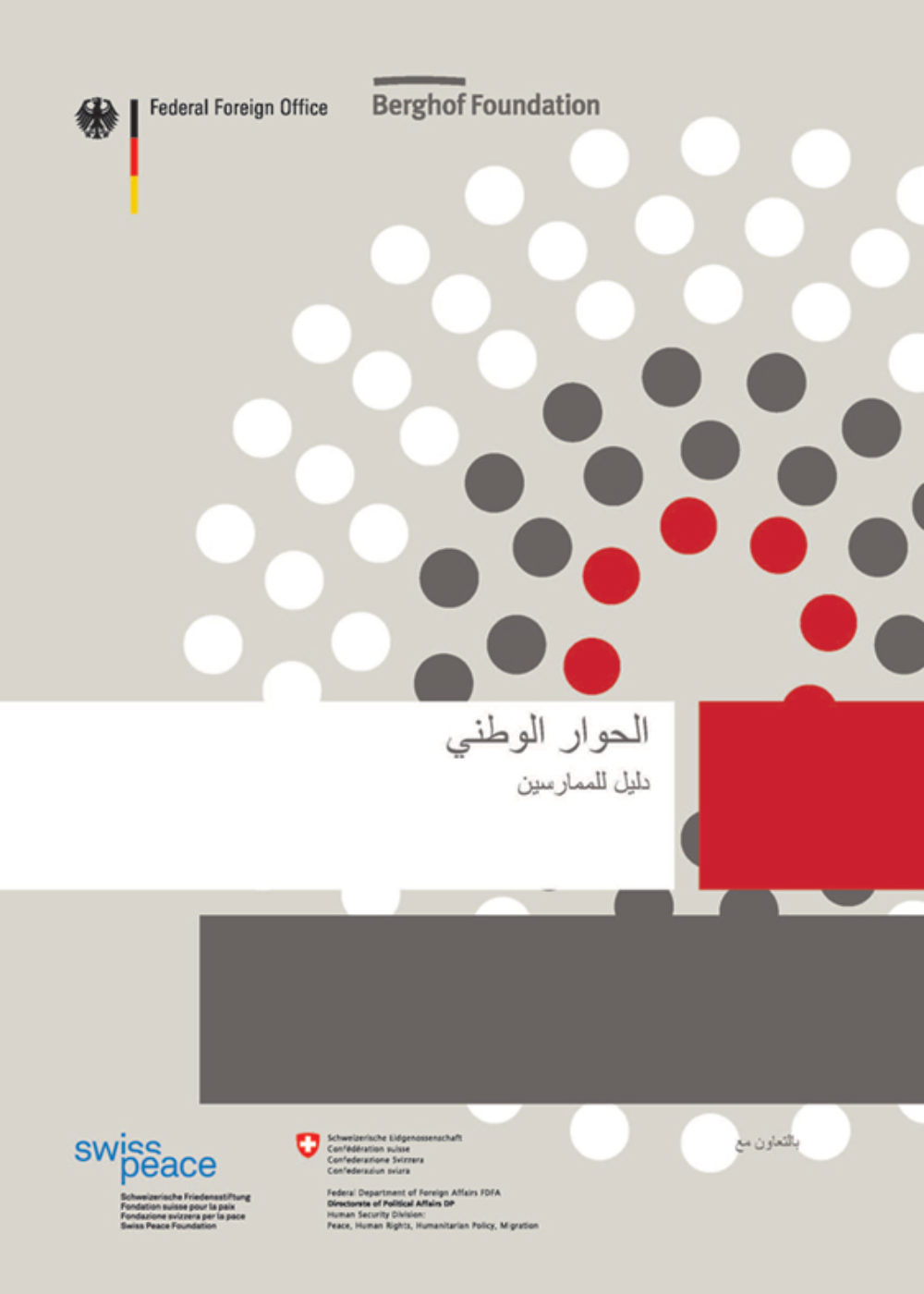
الحوار الوطنيدليل للممارسين
يستند هذا الدليل إلى سلسلة مندراسات الحالة المعاصرة، ويهدف إلى المساهمة في النقاش الناشئً بين حول الحوار الوطني جامعاّ الرؤى المتعمقة والخبرات منّ شتى المناطق المتنوعة. ويسعى بذلكّ إلى عرض تأمالت منهجية وطرحٍ مشورة ّ عملي ّ ة. وبالتالي فإن الدليلُ يساند الجهات ذات الصلة بالنزاعُ والممارسين )المحليين والدوليين على حد سواء( لمواجهة التحديات التي تعترضهم ولوضع التصميم األنسب لسياقهم الخاص.
- Year2017

Manuel de dialogue nationalGuide à l’attention des praticiens
Le présent manuel se fonde sur des études de cas contemporaines et entend contribuer au débat naissant sur le dialogue national, en rapprochant les perspectives et les expertises de diverses régions et en proposant une réflexion systématique et des orientations concrètes.
- Year2017